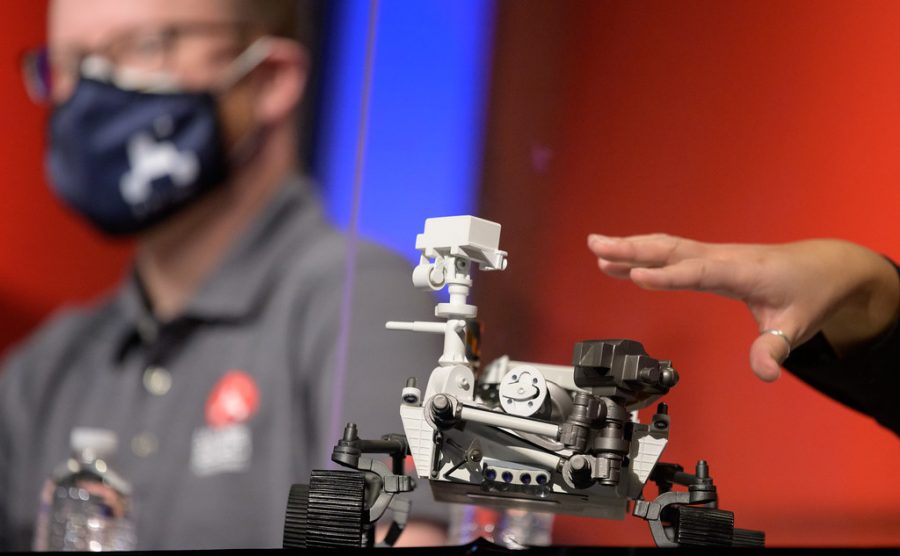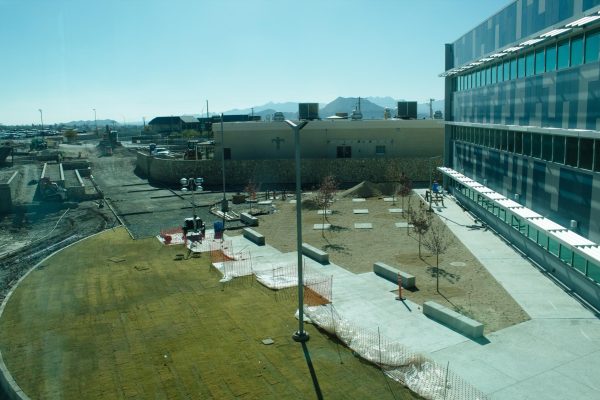Perseverance rover begins research on Mars
The Perseverance rover landed on Mars, where it will conduct research to help scientists determine whether the red planet was home to life forms in ancient times.
The rover formally known as Perseverance landed on Mars on Feb. 18 and drove on the red planet for the first time on March 4 after launching from Earth on July 30. Perseverance’s mission is to seek signs of ancient life and collect samples of rock and soil for examination on Earth.
Accompanying Perseverance is the Ingenuity helicopter, the first helicopter to be sent to another planet. According to NASA, Ingenuity is a “technology demonstration to test the first powered flight on Mars.” Ingenuity traveled to Mars attached to the rover’s belly. The helicopter has communicated with the mission team successfully.
“I think this mission is incredible,” senior Destiny Huff said. “While there may not be any signs of past life on Mars, it still makes the possibility of human life there much more real.”
A positive report from Ingenuity is important because without proper battery maintenance, it cannot stay warm enough to function properly during the extremely cold Martian nights.
Ingenuity also gets power from Perseverance but will detach from the rover within 30 to 60 days. When that detachment occurs, the drone will be powered by solar panels. This scientific achievement is historic because, should all go according to plan and should Ingenuity survive the frigid cold first, it could pioneer new opportunities for Mars exploration using helicopters.
Perseverance was developed based on the Mars Science Laboratory’s Curiosity rover configuration. It is about nine feet wide and seven feet tall. The rover got its name from a Virginia middle school student named Alexander Mather who won NASA’s “Name the Rover” essay contest.
Perseverance’s mission duration is expected to be at least one Mars year, or about 687 Earth days. By the end of the rover’s mission, NASA could make exciting discoveries relating to past microbial life on Mars.

Adriana Adame is a senior, and this is her first year in newspaper. Her favorite part of newspaper is writing about Coronado's current events. She spends...











